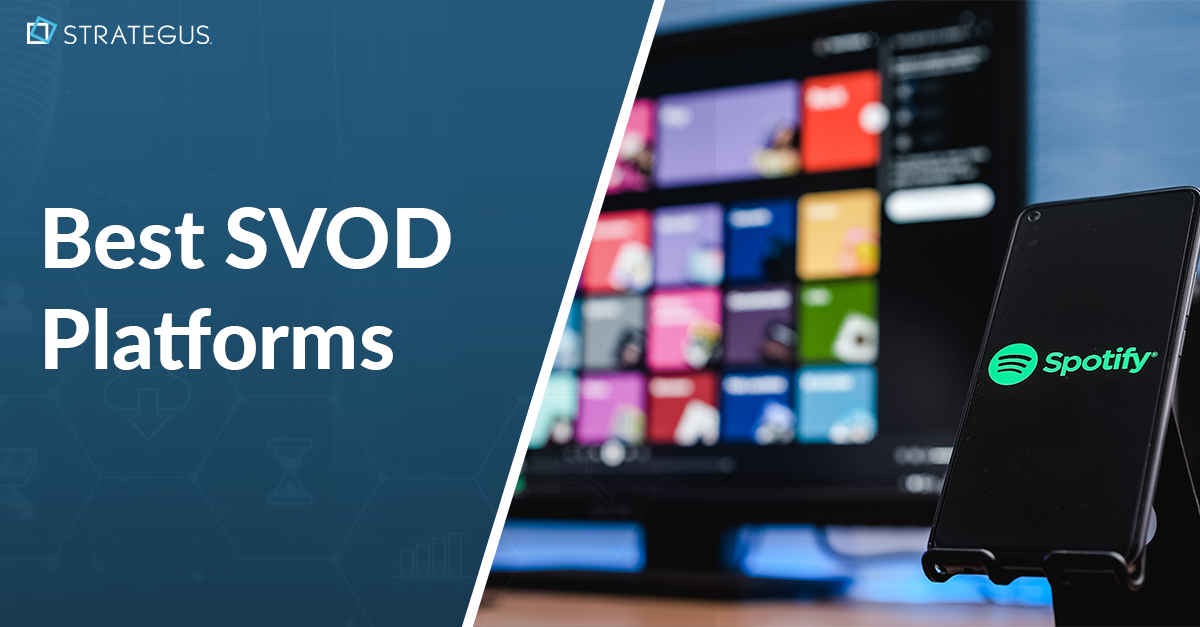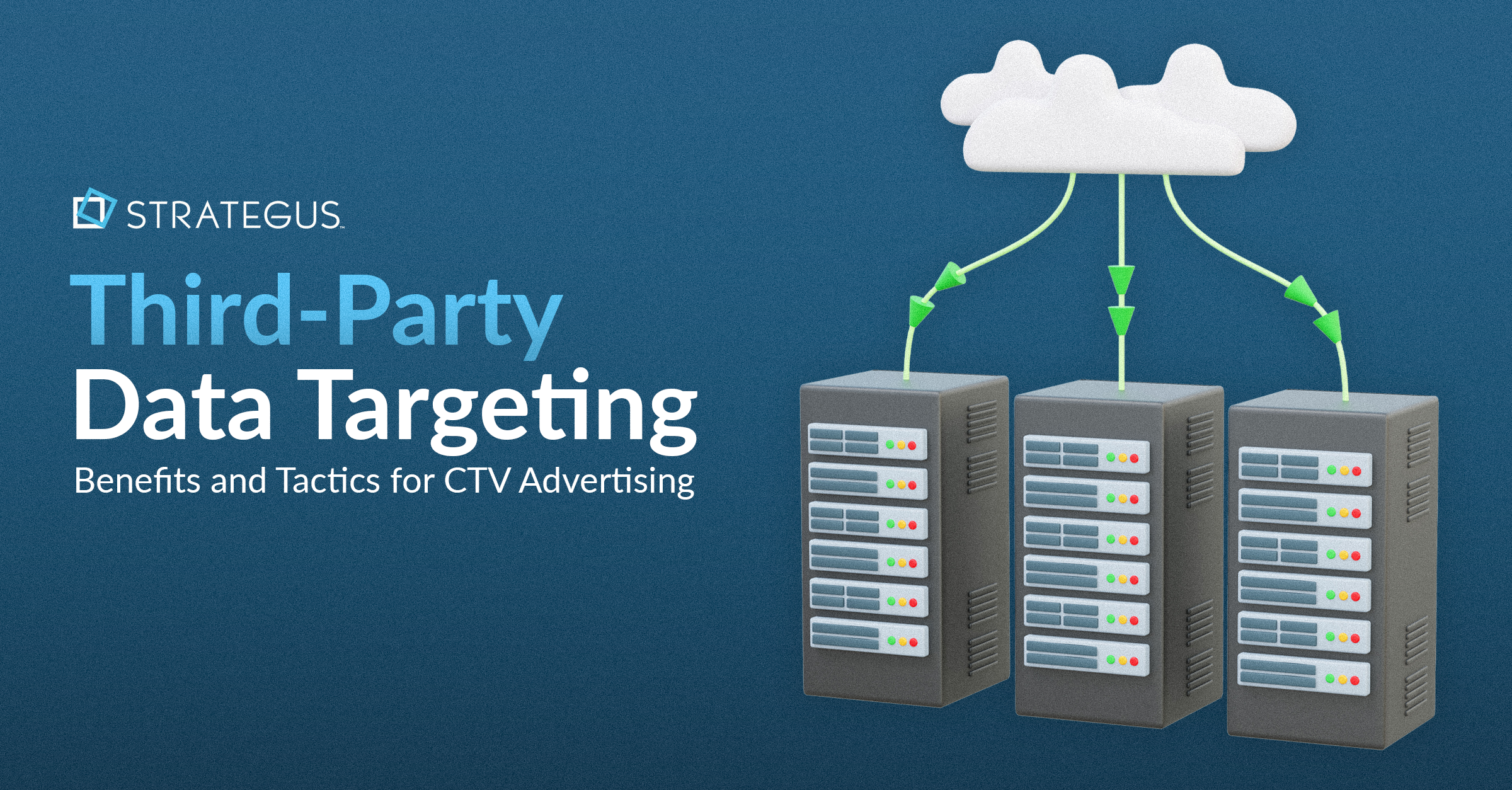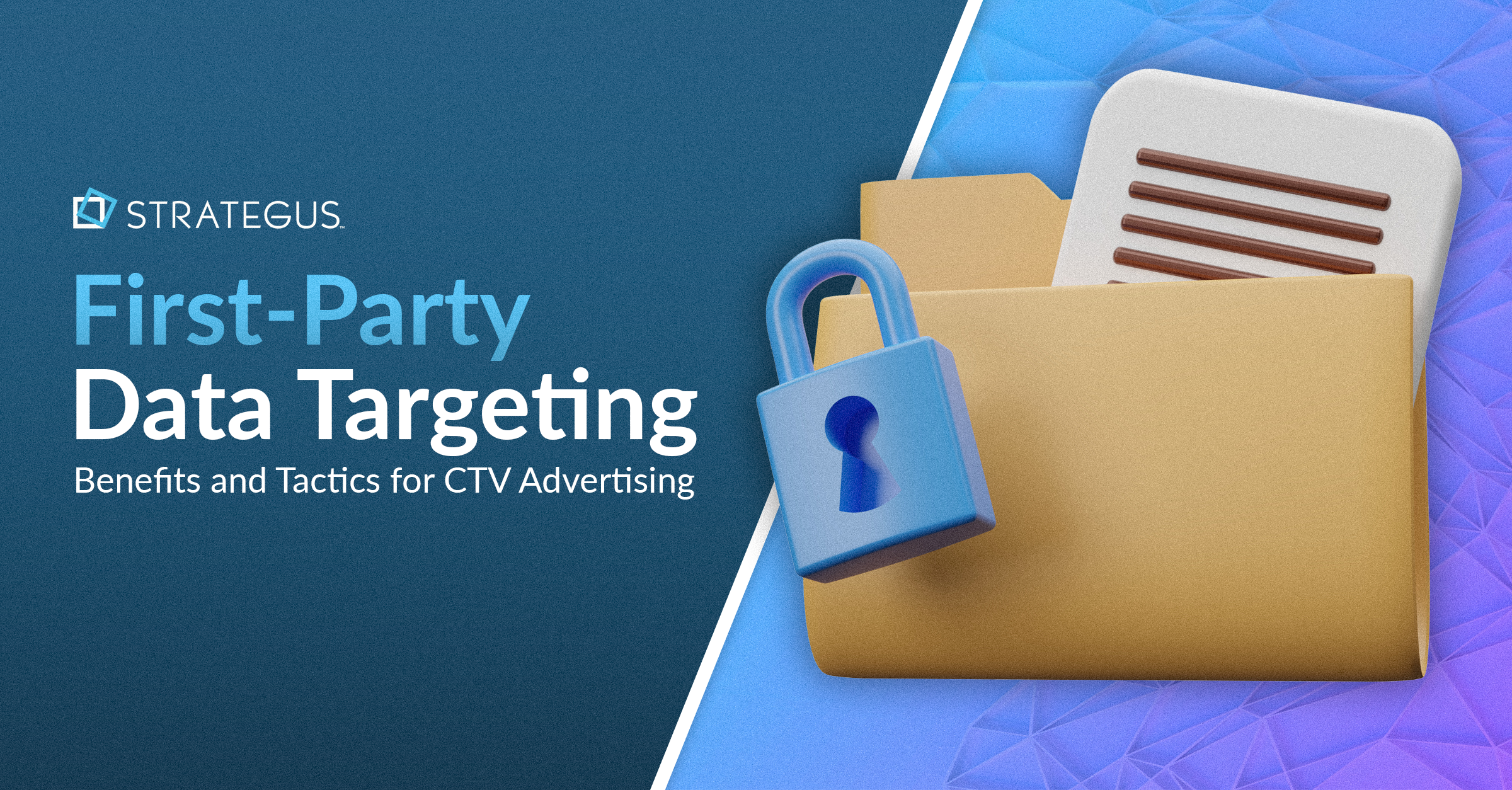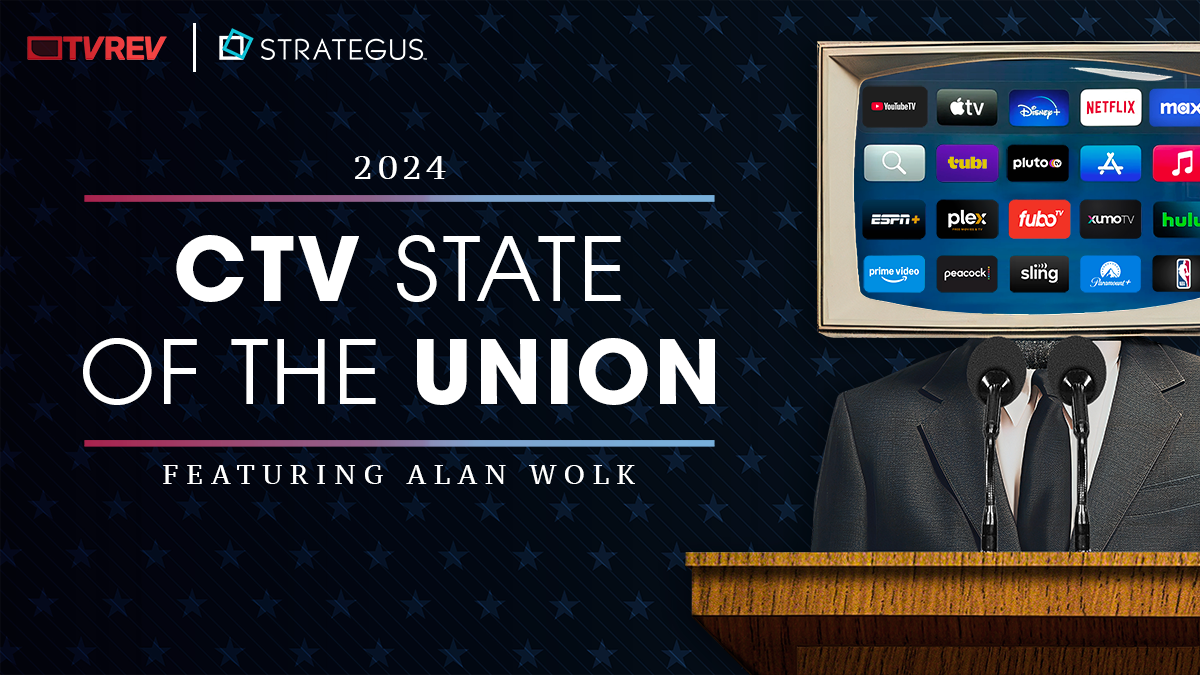- Home
- Strategus Blog
- CTV Examples: Tactics and Tips for Connected TV Advertising
CTV Examples: Tactics and Tips for Connected TV Advertising
 Traci Ruether
Traci Ruether
13 minutes read

Unlike traditional broadcast television, connected TV (CTV) ads are delivered over the internet. This makes them more targeted and measurable — enabling advertisers to engage niche audiences with tailored messaging.
While traditional TV advertising is centered around driving brand awareness, CTV ads can play a role in more conversion-focused campaigns. But this requires taking a different approach that incorporates direct-response tactics.
In this article, we detail different CTV advertising strategies, examples of high-performance campaigns across industries, and best practices when developing creative for connected TV.
But first, let’s cover a few basic definitions to get on the same page.
What Are CTV Ads?
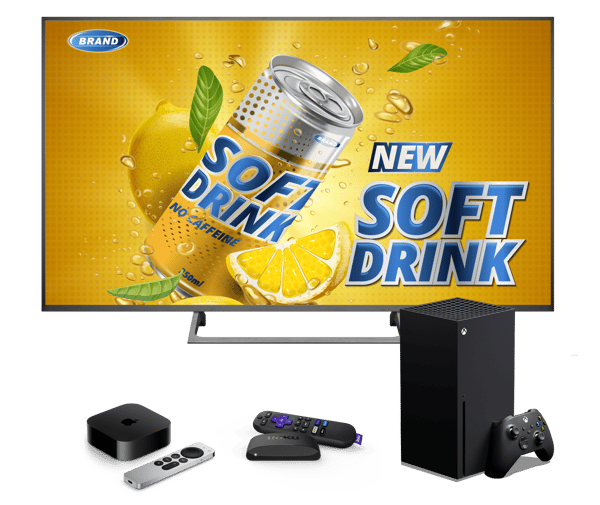
CTV ads are commercials that run before and during the premium streaming content delivered to internet-connected TVs. Because CTV ads are purchased programmatically, they can be used to target specific viewers based on demographics, personal preferences, and more.
For this reason, CTV ad creative can (and should) be personalized to the target audience. The messaging should also be more actionable than traditional TV ads if the goal is to convert new leads — providing a website, phone number, or QR code that makes it easy for users to take the next step in the buyer’s journey.
What Are CTV Devices?
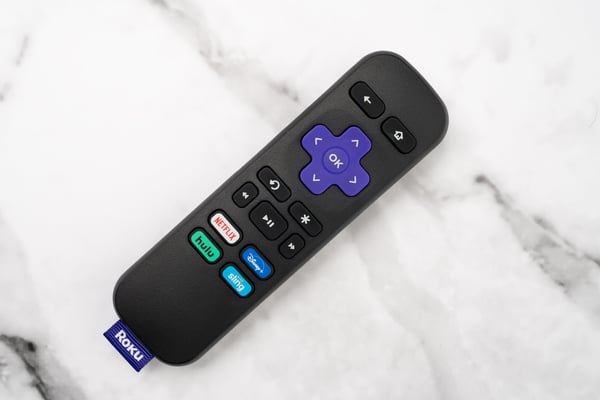
CTV devices describe the internet-connected hardware that viewers use to stream over-the-top (OTT) content from platforms like Netflix, Hulu, and Amazon Prime. Examples of connected TV devices include smart TVs like LG, set-top boxes like Roku, and gaming consoles like PlayStation.
Because these devices provide data about the users linked to them, they enable advertisers to pinpoint who sees their ads based on personal interests, browsing activity, lifestyle choices, and more. This paves the way for more advanced CTV targeting and attribution capabilities than traditional broadcasting.
What Is Connected TV Inventory?
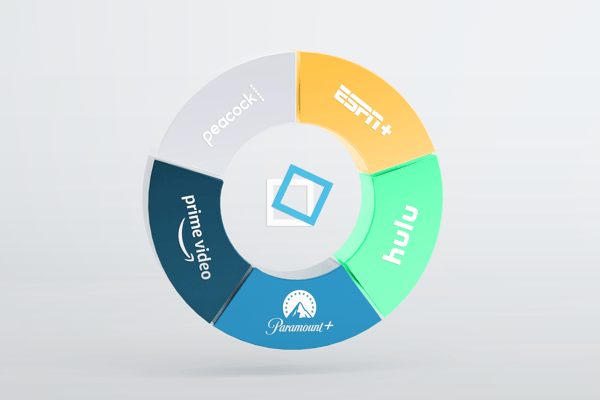
CTV Inventory refers to the commercial slots available when buying ads on streaming platforms. Everything from pre-roll ads on Hulu to the commercial breaks when streaming HGTV falls into this category.
A major difference between CTV and traditional broadcast is how inventory is purchased. Commercials have traditionally been placed on a publisher-centric basis. With CTV, though, advertisers can take a content-agnostic approach that targets specific viewers regardless of what they’re tuning into — rather than tying campaigns to specific publishers or channels.
For this reason, finding a CTV provider with cross-platform inventory ensures better campaign results.
CTV Advertising Best Practices
There’s no silver bullet to CTV advertising. Different industries and buyers respond to different tactics. But some best practices to implement when moving from the traditional broadcast paradigm to CTV include:
- Using up-to-date creative. Keeping the content of your ads updated will drive better results. One way to do this is by promoting inventory from your website or current deals as an overlay on standard evergreen video ads.
- Tailoring messaging to different buyers and funnel stages. It’s always a good idea to personalize your messaging based on the viewer and where they’re at in the path to purchase. This is especially true when developing multi-channel campaigns centered on nurturing users down the funnel.
- Using a call to action (CTA). Do you want viewers to visit your website, call your office, or head to a physical storefront? Make this clear by using a CTA.
- Retargeting viewers with clickable ads. CTV ads shouldn’t operate in a vacuum. Rather, they should be linked with retargeting efforts that reach viewers in clickable formats like paid search ads, social media ads, display ads, and online video ads. For this, you'll need a provider like Strategus that can execute integrated cross-channel campaigns.
- Testing and optimizing based on real-time data. CTV ads run in digital environments. And just like all digital marketing efforts, these campaigns should be monitored and tested on an ongoing basis. Marketers can adapt their strategy on the fly with an agile CTV partner like Strategus, making 24/7 visibility into performance an absolute must.
The promise of CTV is great, but implementing everything detailed above takes time. Doing it yourself requires expertise, integrations with multiple vendors, and advanced tech capabilities. That’s why many agencies and brands elect to work with a managed services CTV provider.
Check out our Complete Guide to CTV Best Practices for Creative, Strategy, and More here.
CTV Examples by Tactic
Innovation is the name of the game in CTV advertising. Beyond the best practices outlined above, marketers are constantly testing new tactics for engaging customers and driving revenue.
Here are some examples of leading brands and agencies shaping the future of TV advertising.
Dynamic Creative

For industries with product inventory that changes daily, CTV provides the opportunity to send live listings to in-market buyers on their living room TVs. Consider car dealerships, which are often faced with unpredictable inventory that’s attractive to an array of different buyers.
Say a thousand EVs show up on a car dealer’s lot. With CTV advertising, they could dynamically insert live inventory listings from their website as an overlay on standard evergreen content — thus showing an up-to-date look at what’s available.
Dynamic creative can also be used to promote monthly deals and personalize ads to different viewers. This allows marketers to adapt their creative depending on the audience segment.
For instance, a car dealership may want to promote the safety of a new minivan to potential buyers with young children, while also running ads for affordable sedans to low-income individuals. With CTV advertising, they could create separate campaigns for each persona using advanced targeting capabilities and dynamic creative. From there, re-engaging those viewers on other devices would help drive conversions.
QR Codes
QR codes have been having a moment ever since the pandemic. And when it comes to CTV advertising, their value is threefold:
- QR codes make TV commercials clickable.
- They engage viewers across multiple screens and devices.
- They provide transparency and measurability to advertisers.
That said, a commercial would have to be super compelling to prompt someone to reach into their pocket and scan a code during a 30-second ad break. This approach also doesn’t account for the leaned-back experience of streaming TV.
Take it from Joel Cox, our co-founder and EVP of strategy:
QR codes may be a good fit for specific campaigns and business models. But we believe there’s a better (and less disruptive) way to transition from the living room TV to a clickable screen.
Multi-Channel CTV Campaigns Using Cross-Device Retargeting

Rather than putting all your chips in a QR code, why not deterministically retarget people who’ve been exposed to a brand with clickable formats like display ads? This tactic enables advertisers to follow people who’ve seen their CTV ads across devices and deliver the best message at each touchpoint.
For instance, a law firm might start by driving awareness on the big screen, and then follow the same people across streaming audio platforms like Pandora, social media apps like Instagram, and online video platforms like YouTube.
The exact media mix for a retargeting campaign will vary based on each business model. But regardless of industry, the aim should be to deliver an integrated experience that moves buyers down the funnel.
Here’s an example of how you might design a multi-channel CTV campaign that does just that:
| Stage | Channels and Approach |
|---|---|
| Awareness |
|
| Consideration |
|
| Conversions |
|
At Strategus, we take a unique approach to CTV retargeting that combines big-screen ads with omnichannel strategies across the programmatic ecosystem. Not only does this ensure a consistent experience for consumers, it can also increase conversion by more than 200%.

Shoppable Ad Units and Interactive CTV
Shoppable TV ads are the next big thing in streaming. Brands like Amazon and Disney are already experimenting with this format, which lets viewers purchase products that appear on the screen without navigating away from the content.
Imagine tuning into Thursday Night Football on Amazon Prime and being able to purchase your favorite player’s jersey using the TV remote. This is coming, but we’re still in the early stages.
TVREV’s Alan Wolk explains:
“New AI-based software is making it easy for brands to add shopability to their commercials across the streaming landscape. That said, most of the 2024 budget on this is going to be experimental. Brands still aren’t sure how this will work, if it will be any different than direct response advertising, and how to measure it. If it works the way they expect, it will be much bigger in 2025. If not, then back to the drawing board.”
CTV Examples by Industry
So, how are these CTV tactics being applied across industries? Here are success stories from some of the verticals that Strategus serves.
Automotive CTV Example
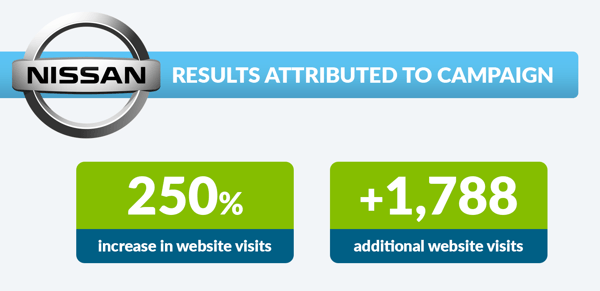
TV advertising has always been a valuable channel for auto dealers. And with more consumers cutting the cord each day, connected TV (CTV) has emerged as an essential part of the automotive marketing playbook.
To this end, a rural Nissan dealer partnered with us to increase online traffic using a CTV-first strategy. Their goal was to reach automotive shoppers in their vicinity and measure the holistic impact of their ads.
The dealership combined CTV awareness ads with cross-device display ad retargeting to drive users to their website. This enabled them to track the online actions taken by viewers post-CTV ad exposure, thereby linking the campaign to tangible results.
Healthcare CTV Example
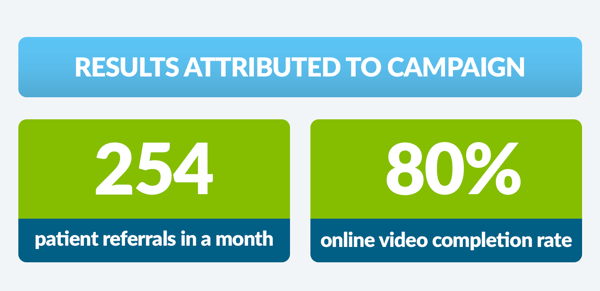
Healthcare advertising comes with a unique set of goals and challenges. Targeting the right viewers while maintaining compliance can be tricky. What’s more, the healthcare sales cycle is lengthy, making campaign measurement a different beast.
At Strategus, we partnered with a physical rehabilitation center looking to improve brand awareness. Rather than marketing to potential patients, the center opted to drive patient referrals from physicians and support staff in the area using occupation-based targeting.
The center worked with Strategus to combine CTV ads with a cross-screen strategy that layered online video, display, and streaming audio ads into their approach. This facilitated a clear path to conversion, customized to their needs. As a result, the center surpassed campaign goals in two months during a historically low period.
Law CTV Example
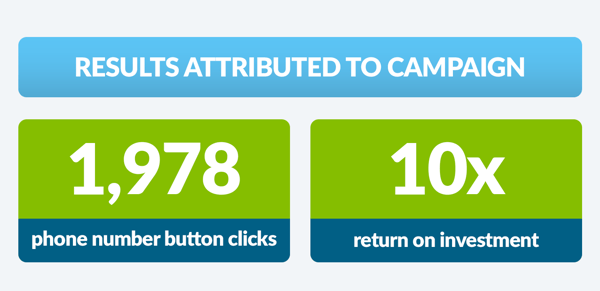
Modern legal marketing is all about being in the right place at the right time. Getting this right requires finding the niche audiences most likely to convert, be they personal unjust intenders or estate planning prospects.
Struggling with low-quality leads in trust and estate litigation, Hackard Law partnered with Strategus to speed up the sales cycle. By employing precise targeting coupled with multi-platform retargeting, they saw a dramatic shift.
Not only did the firm’s brand awareness soar across California, but they secured 3 new cases within 8 months — resulting in a 10x return on investment.
In Mark Hackard’s own words: “Strategus is a pioneer in developing and delivering programmatic Connected TV…and Strategus has been a strategic partner for us. We’ve been successful in our Strategus-led campaigns, and we plan many more.”
Read the Case Study →
Conclusion
Connected TV (CTV) advertising is a powerful tool for agencies and brands looking to move beyond broad awareness with more results-driven campaigns. But this requires taking a different approach than you would to traditional TV commercials.
If you’re ready to find out how our team of experts can work with you to develop a conversion-focused strategy tailored to your needs, contact us today.

Traci Ruether is a content marketing consultant specializing in video tech. With over a decade of experience leading content strategy, she takes a metrics-driven approach to storytelling that drives traffic to her clients' websites. Follow her on LinkedIn or learn more at traciruether.com.
Strategus is a managed services connected TV(CTV) advertising agency with over 60,000+ campaigns delivered. Find out how our experts can extend your team and drive the result that matter most.
Talk to an Expert
Table of Contents
Seeking a Custom CTV Strategy That Delivers?
What to read next
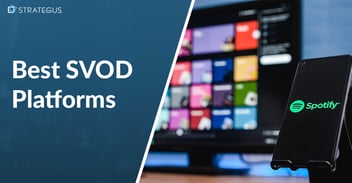
Best SVOD Platforms for Advertisers
The streaming wars have a new battlefront, and this time, it's all about your ad budget. Just a few years ago, SVOD meant "no commercials." Now, it...
12 minutes read
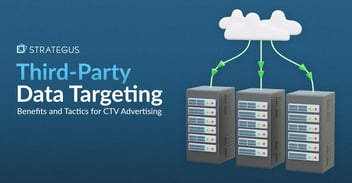
Third-Party Data Targeting for CTV: Benefits & Tactics
Third-party data. It’s a term that’s thrown around, and yet few take the time to detail its pros and cons — much less strategies for using...
7 minutes read

First-Party Data Targeting: Benefits and Tactics for CTV Advertising
First-party data is the information that companies collect directly from their customers rather than through intermediaries. Advertisers use this...
10 minutes read

Foot-Traffic Attribution: Tying Ad Impressions to In-Store Visits
The marketing funnel has changed. Today’s shoppers often begin researching products from the comfort of their homes and don’t set foot into a store...
8 minutes read



